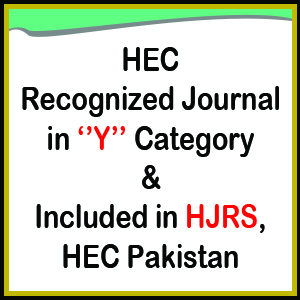Implementation of School Improvement Plan through Results Based Management: A Framework to Practice
DOI:
https://doi.org/10.26710/reads.v5i1.222Keywords:
School Improvement Plan, Result Base Management, RoadmapAbstract
A school improvement plan is a “road map” that sets out the changes a school needs to make to improve the level of student achievement, and shows how and when these changes will be made. The objectives of the study were remained as, to identify the practices of Results Based Management (RBM) in relation with the implementation of School Improvement Plan (SIP) on the basis of performance, to explore the perceptions of the heads of schools and Secondary School Teachers (SSTs) about implementation of School Improvement Plan (SIP), to analyze the physical and educational facilitates in school improvement plan. A set of research questions was used to achieve the objectives of the study. The collected data was analyzed by using inferential and deferential techniques of data analysis. The findings and conclusions of the study show that School Improvement Plan is being carried out at secondary schools of Punjab through Result Base Management. It is also revealed that the whole process of school management is revolving around school improvement plan; administration has less training about result base management. Some recommendations are given to synchronize the process to achieve desired objectives of school improvement Plan.
References
AEPAM. (2011). Pakistan Educational Statistics, 2010.Islamabad: Academy of Educational Planning and Management.
Anderson, Stephen R. (1992). A - Morphous Morphology. Cambridge: Cambridge University Press.
Austin, L. (1993). Management Science for Decision Makers, Minneapolis/St. Paul: West Publishing Co.
Barnes, R. (2004). EWCA Crim 3246. Criminal law - Assault - Inflicting grievous bodily harm in the course of sport. Facts: The appellant was an amateur footballer.
Dimmock, C (2000). Hong Kong's School Reform: Importing Western Policy into an ... Hong Kong Institute of Educational Research, 1: pp 49-67.
Drucker, P. (1954). The practice of management. New York: Harper & Row.
Earl.et.al. (2003). Manitoba School Improvement. Retrieved on Oct.29, 2010, http://www Pace Work org. Edition, McGraw-Hill. Education 3(1): 75–89.
Fullan, M.(2001). The New Meaning of Educational change: London Cassell.
Harris Alma and Linda Lambert (2003). Building Leader ship Capacity for Improvement. Phladelphia: Open University Press.
Harris, A., and Chapman, C. (2002). Democratic leadership for school improvement ...Hopkins 2001a; West, Jackson.
Harris,A. and Daniel Muijes (2005). Improving School through Teacher Leader Ship: London: Open University Press.
Jeilu (2010), School improvement is the process.
Khosa G. (1999). Sustainable School Improvement: A partnership between the State, the private Sector and Civil Society.
Kruger.A.G. (1996).School Management: International and External environment. Pretoria. University of South Africa.
Kusek, J.Z. and Rist, R.C. (2004). The International Bank for Reconstruction and Development / The World Bank, Washington,
Louise Stoll (1996). School Effectiveness and School Improvement, Department of Education, University of London.
Madhekenl, A (2012). Implementing Results-Based Management Systems in Zimbabwe:
MOE (Ministry of Education, Ethiopia) (2006). School Improvement Program Implementation
National Performance Review (1999). Balancing Measures: Best Practices in performance Management.
Olsen, Raymond T. (1997). "Performance Management Strategies Showing Promise", The Public Manager, Spring, 29-33.
R.J. Briggs and M. Coleman (2007). (eds) Research Methods in Educational Leadership and Management (2nd edition). Los Angeles: Sage Publications.
Rasappan. (2012). Government of Zimbabwe Results-Based Management Program: Results- Based Budgeting System: Guidelines for Developing a Performance Agreement ARTD Malaysia
RBM_Guide. (2008). Results-Based Programming, Management and Monitoring (RBM) Guiding Principles, UNESCO Paris, Bureau of Strategic Planning,
Stoll, L. & Fink, D. (1996). Changing Our Schools: Linking School Effectiveness and School Improvement. Buckingham: Open University Press.









